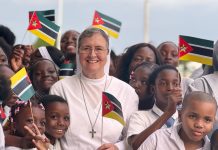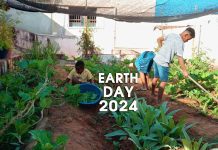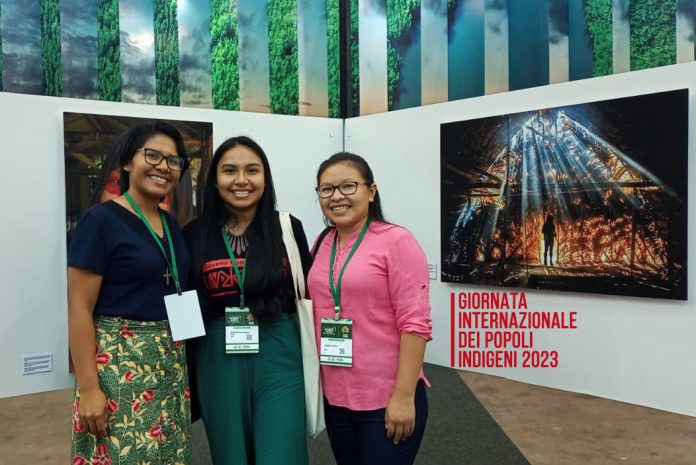Rome (Italy). International Day of the World’s Indigenous Peoples is celebrated on 9 August 2023, established in tribute to the first meeting of the United Nations Working Group on Indigenous Peoples, held in Geneva in 1982. On 23 December 1994, the United Nations General Assembly established that an International Day be celebrated on August 9 each year, to raise public awareness of the needs of indigenous peoples.
The United Nations is committed to defending the rights of indigenous peoples through various instruments, such as the Declaration on the Rights of Indigenous Peoples, with which it promotes and protects the rights of indigenous peoples in international law and politics.
Furthermore, many of the Sustainable Development Goals of the 2030 Agenda concern the needs of indigenous peoples, still not safeguarded in most social, economic, and political aspects. Furthermore, conflicts and human rights violations often lead to their uprooting and land expropriation.
“Indigenous Youth as Agents of Change for Self-determination” is the theme of Day 2023.
The COVID-19 pandemic hampered the recognition of the right of indigenous peoples, in particular the right to promote development based on their own self-determination, underlined during the round table on the rights of indigenous peoples held on 23 March 2023 during the 52nd session of the Human Rights Council (HRC).
More than 86% of indigenous peoples in the world work in the informal economy, compared to 66% of their non-indigenous peoples. Indigenous peoples are almost three times more likely to live in extreme poverty than their non-indigenous counterparts. 47% of all occupied indigenous peoples have no education, compared to 17% of non-indigenous people, and this gap is greater for women.
In view of the September 2023 Summit on Sustainable Development Goals, which will mark the halfway point of the implementation of Agenda 2030, and the Summit of the future 2024, it is important to ensure an inclusive and diverse engagement of young people in multi-stakeholder forums, to achieve change in decision-making processes. The significant engagement of indigenous youth is therefore key in the following areas: Climate Action and Green Transition, Mobilization for Justice, Intergenerational Ties.
The aim of the day is therefore to give young indigenous people their voice and their rightful place in society. With proper education, new skills and technological training, Indigenous youth can offer solutions and contribute to building more sustainable and peaceful Indigenous communities and creating a better world, as they are inheritors and practitioners of unique cultures and ways of relating to people and the environment. Indeed, their representation and participation in global efforts for climate change mitigation, peace building, and digital cooperation are crucial for the effective achievement of their rights as indigenous people.
The Human Rights Office of the International Institute Mary Help of Christians (IIMA) in Geneva, Switzerland, together with VIDES International, is committed to the front line in promoting the rights of indigenous peoples, especially young people.
To this end, during the 53rd session of the Universal Periodic Review (RPU) adopted by Argentina, IIMA, and VIDES recommended that the Argentine government “adapt national, provincial, and municipal legislation that guarantees the participation of indigenous peoples in decision-making processes in all questions concerning their rights.” This applies to all indigenous peoples, especially the young.
Indeed, “Indigenous peoples who have enjoyed the right to self-determination and led recovery efforts have shown that they are better equipped to address the challenges presented by the COVID-19 pandemic [as well as other challenges].” This underlines the need to increasingly develop the personality and capacity of indigenous peoples, especially young people, who can be initiators of change among their peoples and in society at large.
The Joint Declaration of the Dicasteries for Culture and Education and for the Promotion of Integral Human Development on the “Doctrine of Discovery”, on 30 March 2023, in paragraph 9, states that “More recently, the Church’s solidarity with indigenous peoples gave rise to the Holy See’s strong support for the principles contained in the United Nations Declaration on the Rights of Indigenous Peoples. The implementation of these principles would help improve living conditions and protect the rights of indigenous peoples, as well as facilitate their development respecting their identity, language, and culture”.
This, as Pope Francis points out, is their true gift to humanity “How precious is that sense of familiarity and community that is so genuine among indigenous peoples! And how important it is to cultivate well the bond between the young and the elderly, and to preserve a healthy and harmonious relationship with all of creation!”.




















